Introduction
What Do Pigeon Eat: Pigeons, often colloquially referred to as “city doves” or “rock pigeons,” have a long history of association with humans. This close connection has led to their ability to adapt to urban environments and thrive in densely populated areas. While pigeons may appear to be indiscriminate feeders, their diet is more nuanced than it might seem. They are not just subsisting on scraps and crumbs; their nutritional choices are finely tuned to their ecological niche.
In this exploration of pigeon dietary habits, we will delve into the specifics of their diet, which includes seeds, grains, fruits, and even the occasional insect. We will also uncover the role of pigeons in seed dispersal, their importance in urban ecosystems, and how their dietary preferences have shaped their interactions with humans throughout history.
So, join us on this journey to unravel the secrets of what pigeons eat and discover the fascinating ways in which these unassuming birds contribute to the tapestry of life in our cities and beyond. From their foraging behaviors to their role in shaping urban biodiversity, we will unravel the dietary mysteries of pigeons live and gain a deeper appreciation for these remarkable avian companions in our everyday lives.

What is pigeon’s Favorite food?
Their diet also demands protein and fat to remain healthy, whether that’s from nuts, fruits or other animals. They do not have a “favorite food” but they enjoy eating seeds, nuts and vegetables more than anything else.
Pigeons are highly adaptable birds with a diverse diet, but they do have some favorite foods that are commonly consumed when available. Their preferences may vary depending on their environment, but some of their favorite foods include:
Seeds and Grains: Pigeons have a strong preference for seeds and grains. They are particularly fond of grains like wheat, barley, maize (corn), and millet. These food sources are energy-rich and readily available in both urban and rural environments.
Bread: Pigeons are often seen scavenging for bread crumbs in urban areas. While bread is not particularly nutritious for them, pigeons are attracted to it due to its high carbohydrate content. However, it’s important to note that excessive feeding of bread can be harmful to pigeons as it lacks essential nutrients.
Berries and Fruits: Pigeons will eat a variety of berries and fruits when they are in season. This includes fruits like berries, cherries, and even small apples or pears. Fruits provide pigeons with vitamins and natural sugars.
Insects: Although not their primary food source, pigeons may occasionally consume insects, especially when other food options are scarce. Insects provide them with protein and other essential nutrients.
Green Vegetation: Pigeons will also eat tender green shoots and leaves, especially in rural areas where they have access to grassy fields and gardens.
What can you feed a pigeon?
Pigeons eat grasses, leafy greens, berries, herbs, fruits, berries, grains, weeds, insects, and worms. It’s not a good idea to feed pigeons bread for many reasons. It’s best to set up a feeding box with appropriate options healthy for pigeons. Wild pigeons eat millet, cracked corn, sunflower seeds, and sorghum.
Feeding pigeons, whether you encounter them in a park, garden, or urban setting, can be an enjoyable and rewarding experience. However, it’s important to provide them with appropriate and nutritious food to ensure their health and well-being. Here are some suitable foods to feed pigeons:
Pigeon Feed: Commercial pigeon feed or birdseed mixes designed for doves and pigeons are an excellent choice. These feeds are formulated to meet their nutritional needs.
Seeds and Grains: Pigeons love seeds and grains. You can offer them a variety of seeds like cracked corn, wheat, barley, and millet. These are readily available and are a staple of their natural diet.
Fresh Water: Always provide fresh, clean water for pigeons. They need water for drinking and bathing.
Fruits: Pigeons enjoy a variety of fruits, including berries, cherries, grapes, and small pieces of apples or pears. Make sure to cut fruits into small, manageable pieces.
Vegetables: Pigeons may eat some vegetables, such as leafy greens and peas. Offer them in small quantities.
Crumbled Bread: While bread is a popular option, it should be given sparingly, as it lacks many essential nutrients. It’s best to use it as an occasional treat and not as a primary source of nutrition.
Do pigeons eat rice?
Pigeons will eat almost anything, including rice. I don’t think rice (especially white rice) is especially nutritious as a bird food, but if the pigeons also eat a variety of other foods, they should be fine.
Yes, pigeons can eat rice, and it is a food item often included in their diet. Rice is a source of carbohydrates, which provides pigeons with energy. They can consume both cooked and uncooked rice, although cooked rice is generally safer for them to eat as it is easier for them to digest. It’s a common practice to offer plain, cooked rice to pigeons, either as part of their regular diet or as an occasional treat.
However, it’s essential to ensure that the rice you provide is plain and free from any additives, such as salt, spices, or sauces. Plain, unseasoned white or brown rice is the best option. Additionally, always serve rice in small quantities to prevent overfeeding and monitor the pigeons’ response to this food.
While pigeons can eat rice, it’s important to offer a balanced diet that includes a variety of foods, such as seeds, grains, fruits, and vegetables, to meet their nutritional needs adequately. Feeding them a diverse range of foods will help ensure their overall health and well-being.
Do pigeons eat dal?
When I was working in my living room, two pigeons flew into my balcony. They roamed here and there for a minute, perhaps searching for food. So, I thought of feeding them some chana dal (gram pulses) and rice grains. At first, they quickly ate chana dal, and then rice grains.
Pigeons can eat dal (lentils) as part of their diet, but it’s essential to prepare and serve it appropriately. Lentils are a good source of protein and other essential nutrients for pigeons. Here’s how you can safely offer dal to pigeons:
Cooked Lentils: Pigeons should be given cooked lentils. Dry lentils are typically too hard for them to digest. Cooked lentils are softer and easier for pigeons to consume.
Plain and Unseasoned: Ensure that the lentils are plain and unseasoned. Do not add salt, spices, or any other seasonings that can be harmful to pigeons.
Moderation: Offer cooked lentils in moderation as part of a balanced diet. Pigeons need a variety of foods to meet their nutritional requirements, so lentils should not be the sole source of food.
Small Portions: Pigeons have small beaks, so it’s a good practice to provide lentils in small, manageable portions.
Clean and Fresh: Make sure the lentils are clean and free from contaminants. Avoid offering lentils that are spoiled or moldy.
Can pigeons eat raw rice?
Fact is, rice cooked or uncooked won’t hurt wild birds at all. The rumor is that uncooked rice hits the bird’s tummy and then swells causing its stomach to explode. It’s simply not true. It’s not hot enough in a bird’s stomach to actually “cook” the rice.
Pigeons can technically eat raw rice, but it’s not the best option for them. Uncooked rice is hard and can be difficult for pigeons to digest, potentially causing digestive issues. While pigeons have strong digestive systems that can handle a variety of foods, it’s generally safer to offer them cooked rice.
Cooked rice is softer, easier to digest, and poses fewer risks to the pigeons’ health. Plain, unseasoned, and thoroughly cooked white or brown rice is the preferred choice if you want to provide rice to pigeons.
Remember that rice should be part of a varied diet for pigeons and not the sole or primary food source. Pigeons benefit from a mixture of foods, including seeds, grains, fruits, vegetables, and other nutritious items to ensure they receive a balanced diet. Always offer small portions of rice to prevent overfeeding, and make sure it is clean and free of contaminants before serving it to the pigeons.
Do pigeons drink water?
Most birds drink by dipping their bill in water and throwing their head back to swallow. Pigeons and doves are able to immerse their beaks and can drink continuously.
Yes, pigeons, like all birds, drink water. Water is an essential part of their diet and is necessary for their survival. Pigeons drink water to stay hydrated, just like humans and other animals. They not only use water for drinking but also for bathing, which helps them keep their feathers clean and in good condition.
Providing access to fresh and clean water is important if you want to attract pigeons or support their well-being in your area. Pigeons will often seek out water sources, such as ponds, fountains, birdbaths, or even puddles, for drinking and bathing. If you’re interested in attracting pigeons or other birds to your garden or outdoor space, consider installing a birdbath or providing a shallow container of fresh water regularly. Just be sure to keep the water clean and change it regularly to prevent the spread of disease and ensure the birds have access to safe drinking and bathing water.
Can pigeons eat potatoes?
Potatoes. Baked potatoes (cold and opened up), roast and even mashed potatoes with added real fats are all suitable food for birds. Chips are rarely eaten by birds.
Pigeons can technically eat cooked potatoes, but it’s not an ideal food for them. Raw potatoes should be avoided, as they contain solanine, a naturally occurring toxic substance that can be harmful to pigeons and other animals.
Cooked potatoes, on the other hand, are safe for pigeons to consume in moderation. However, they are not a preferred or particularly nutritious food for pigeons. Potatoes are starchy and relatively low in essential nutrients that pigeons need for their overall health. Pigeons have a varied diet that includes seeds, grains, fruits, and some vegetables, and they should primarily be offered foods that are more nutritionally beneficial to them.
If you do choose to offer cooked potatoes to pigeons, make sure they are plain, unseasoned, and preferably mashed or chopped into small, manageable pieces. Always provide them in small portions, as an occasional treat, rather than as a primary food source, and ensure that the pigeons have access to a well-balanced diet to meet their nutritional requirements.
Do pigeons need milk?
Both female and male pigeons produce a nutrient rich substance in their crop to feed their young (squabs). This substance has been likened to lactation in mammals and is referred to as pigeon ‘milk’. This ‘milk’ is essential for the growth and development of the pigeon squab, and without it they fail to thrive.
Pigeons, like most birds, do not need milk as part of their diet. In fact, pigeons are lactose intolerant, which means they lack the necessary enzymes to digest lactose, the sugar found in milk and dairy products. Feeding pigeons milk or dairy products can lead to digestive upset and diarrhea.
Pigeons primarily require water for hydration. They obtain the necessary nutrients for their diet from sources like seeds, grains, fruits, and some vegetables. It’s essential to provide them with fresh and clean water for drinking.
If you come across a baby pigeon (squab) that has been orphaned or is in need of care, it’s essential to consult with a wildlife rehabilitator or veterinarian for guidance on proper feeding, as baby pigeons have specific dietary requirements during their early stages of development. They should never be fed milk or dairy products. Instead, wildlife experts can provide appropriate formula and care instructions for orphaned pigeons.
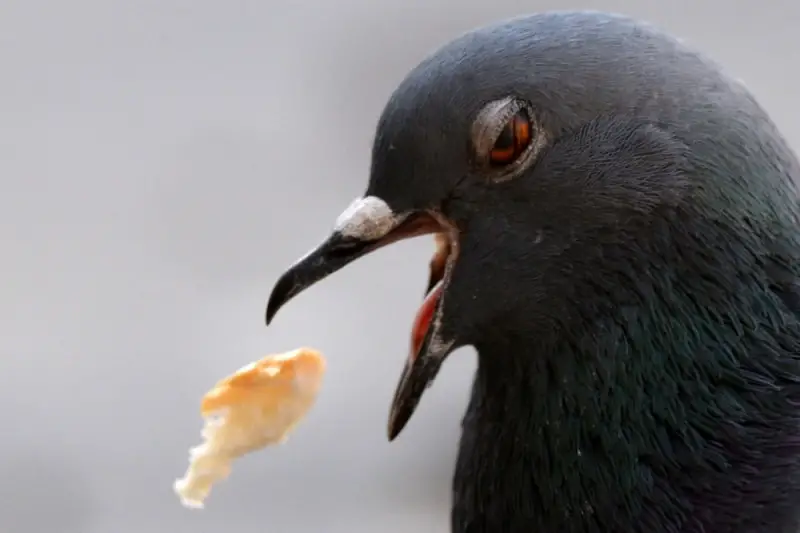
Conclusion
The dietary habits of pigeons offer a fascinating glimpse into the adaptability and resilience of these birds in our human-dominated landscapes. While they are commonly associated with urban environments, pigeons’ diets are far from limited to scavenging for crumbs. Instead, they display a remarkable versatility, thriving on a varied menu that includes seeds, grains, fruits, and even insects.
Pigeons’ foraging behaviors not only sustain their own populations but also contribute to the dispersal of plant seeds, playing an often-overlooked role in urban ecosystem dynamics. Their coexistence with humans, despite being sometimes seen as pests, highlights their ability to exploit our habitats without entirely relying on us for sustenance.
As we continue to coexist with pigeons feeding in our cities and countryside, understanding their dietary preferences and ecological contributions is essential. These seemingly ordinary birds are, in fact, a testament to the adaptability and resourcefulness of wildlife in an ever-changing world. In appreciating what pigeons eat, we gain a deeper understanding of their place in our ecosystem and a renewed perspective on the intricate web of life that surrounds us, even in the most urban of settings.

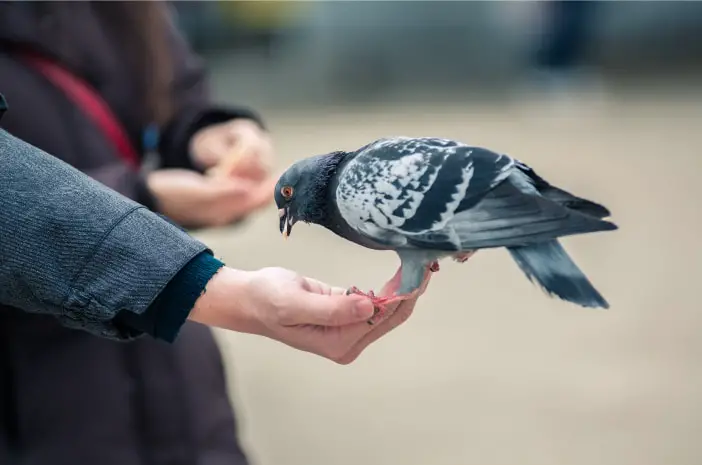
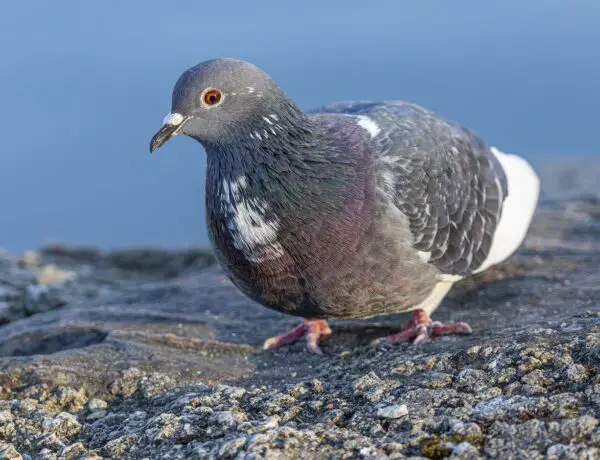
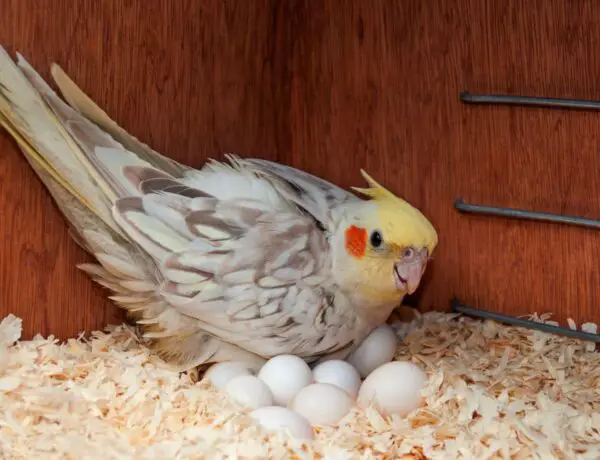
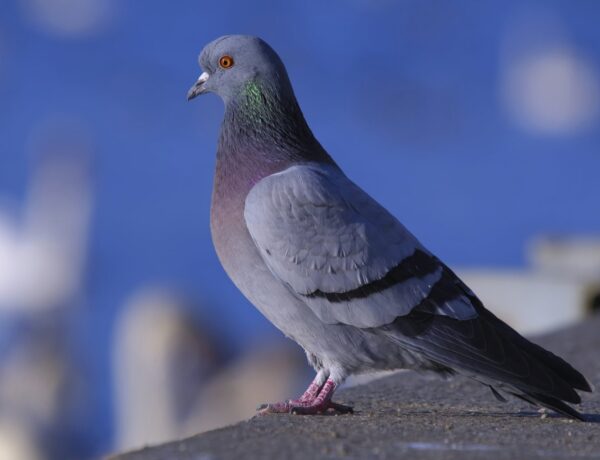
No Comments